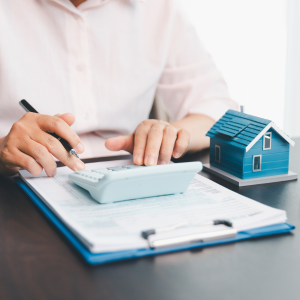
Each individual dealing with Seattle, Washington’s fast-moving real estate market, needs to know how to get an appraisal. Appraisals estimate, influence, remaining time, and closing a mortgage. Understanding how and what influences appraisals significantly creates a seamless transaction through Seattle’s diverse, unique, and varying market trends and neighborhood prices. Understanding the entire appraisal process, whether for securing financing, preparing a home for appraisal, or closing the transactions post-appraisal, within the certainty of the business, allows informed movements and certainty of transition. One of the country’s most vibrant real estate markets exists, and the understanding appraisals provide confidence and clarity to the individual.
Understanding the Appraisal Process in Seattle, Washington
Grasping the ins and outs of the appraisal process in and after closing transactions in Seattle’s real estate market is fundamental for any individual looking to gain entry. Given Seattle’s position within the competitive and dynamic real estate market, appraisals provide the foundation for value determinations.
An appraisal is an objective property valuation conducted by a licensed and qualified appraiser. In the Seattle real estate market, trusted lenders must justify a mortgage amount relative to an appraisal and the property’s estimated value.
The appraiser considers the site and surroundings, condition, and comparable sales recently transacted to formulate the most valid worth. Given the differences in Seattle neighborhoods and the housing price variations, the buyers and sellers need to comprehend these differences.
Buyers must remember that a low appraisal will impact the price they can finance. Sellers should know how the moderate improvements or renovations will affect their home’s worth in relation to the comparable Seattle real estate listings, and thus the appraised value.
Kind House Buyers offers expert guidance to buyers and sellers in Seattle, navigating the appraisal and post-closing process. We help clients understand property valuations, prepare for lender requirements, and strategically position their homes in Seattle’s competitive real estate market to achieve smooth and successful transactions.
Key Factors That Affect Home Appraisals in Seattle
In Seattle’s ever-changing real estate market, home appraisals are influenced by several essential features. An area’s location will always be the most crucial feature. For instance, neighborhoods like Capitol Hill and Ballard are highly valued because of their proximity to amenities and their lively and accessible cultural offerings.
The size and condition of the home are also important; lovely, modern homes will have higher valuations. Since housing demand is variable, it will influence the appraisals differently, affecting market trends, too.
For establishing value in real estate, comparable sales, or comps, are of utmost importance as these are recent sales of similar properties in the area and provide a benchmark that appraisers utilize. Buyer interest, demand stability, and appraisals of the local market are also determined and influenced by the regional economic conditions of employment and population growth. Lastly, distinctive features such as Seattle real estate’s competing view of the water and the presence of sustainable, green design elements are likely to increase the property’s appraisal value.
Differences Between Residential and Commercial Property Appraisals in Seattle
Understanding the differences between commercial and residential property appraisals is key to explaining the differences in Seattle’s real estate market post-closing appraisal period. Seattle’s residential property appraisers strategically focus on comparable neighborhoods and comparable property sales and assess the differences in size, condition, and recent transactions to conclude the market value.
The residential property appraisal process is also simplified and expedited relative to the dominant commercial property appraisals, which require incorporating more sophisticated and diverse approaches to value determination, including income capitalization, cost approaches, and the sales comparison approach.
In Seattle, the valuation of commercial properties needs to analyze additional factors, including, but not limited to, leases, tenants, zoning, and income potential. Seattle’s varied commercial landscape will require a further understanding of local and Seattle-specific economic trends.
The intricacies of the post-appraisal closing process can vary significantly between buyers and sellers, depending on their differences in understanding of Seattle’s real estate landscape.
Importance of Market Conditions on Appraisals and Closing Times
In Seattle’s ever-changing real estate market, understanding how current conditions impact appraisals and closing periods is crucial for both sellers and buyers. In Seattle’s competitive housing market, the dynamics of supply and demand determine a property’s value and its appraisal.
When demand is high and the market is moving quickly, appraisers’ inability to keep up can result in gaps in value and delays in closings. Alternatively, the market slowdown causes lenders to become more conservative, resulting in more conservative appraisals and longer closing periods for lending.
Moreover, externally driven challenges such as changes in interest rates and economic fluctuations can further influence the flow of transactions towards and away from the appraisal stage. For example, the decision to stage a house for sale can impact perceptions during the appraisal, potentially affecting valuation outcomes. Recognizing the influence of such factors enables stakeholders to foresee likely challenges driven by the appraisal stage and facilitate complex transitions within Seattle real estate post-appraisal. This will enable stakeholders to follow the probable steps from contract to closure more effectively.
Contact us today for expert guidance on how Seattle’s evolving market conditions impact appraisals and closing timelines. Our team provides personalized insights and strategic support to help you confidently navigate every stage of the buying or selling process.
Timeline of Closing After a Home Appraisal in Seattle

In Seattle’s ever-evolving real estate market, buyers and sellers must know the fundamental closing timeline after completing a home appraisal. After the assessment, closing on a home, based on lender demands and the intricacies of the deal, usually occurs in the following 30 to 45 days.
In Seattle’s competitive housing market, the appraisal report, which determines the home’s market value, needs to be quickly resolved to address discrepancies between the offer price and the appraised value to avoid unnecessary delays in closing the final mortgage approval from the lenders.
After reviewing and approving the appraisal, lenders allow their clients to obtain financing and finalize required inspections. Title searches and title insurance are also necessary to facilitate effective conveyancing.
Communication is critical for all parties to respond to potential concerns at this stage. An appraisal will close efficiently when it complies with the local law and Seattle practice.
Common Issues That Delay Closings After Appraisals
Delays in closing transactions after the appraisal process in Seattle’s cutthroat real estate market tend to frustrate both buyers and sellers. One such issue involves discernible gaps between the value assigned to a property by an appraisal and the value that a seller and buyer have agreed upon.
This situation may require renegotiation, and one of the parties will have to bear the cost of the price change, or the deal may collapse. In addition, delays in loan underwriting have also become a substantial contributor, primarily due to lenders requesting more documents or delays in processing the documents.
Potential title issues, such as liens and legal claims on the property, must be resolved before closing. Furthermore, inspection contingencies may uncover additional unforeseen repairs that must be addressed during negotiations between the parties, which will cause further delay.
Due to the pace of the market, these will require communication and rapid resolution strategies to keep the transaction moving and avoid lengthy and avoidable delays.
The Role of Lenders in the Closing Process After an Appraisal
In the Seattle real estate market, post-closing procedures, appraisal, and real estate market lenders assist with closing. Once lenders review the finalized appraisal report, they will see if the report and value justification align with the requested loan value.
This is important for the lender because the report is integral to the reconciliation instruction and the steps to finalize closing. It triggers the obtaining of more core loan closing conditions. Lenders assist buyers and sellers in resolving issues and problem maps registered throughout the appraisal.
Lenders work with title companies and escrow officers to complete all documentation necessary to comply with Seattle real estate rules. By taking care of the complex details, they manage the transition from the appraisal to the loan’s closing, thus allowing the lenders to provide financing to the anticipated homeowners in this highly competitive market.
Strategies to Expedite the Closing Process After an Appraisal

To expedite the closing process and sell your house fast in Seattle and other cities in Washington, buyers and sellers must maintain clear communication and promptly prepare all necessary documentation. Collaborating closely with a knowledgeable real estate agent who understands Seattle’s specific market dynamics can streamline negotiations and quicken responses to potential issues arising from the appraisal report.
A dependable mortgage lender is also helpful, especially when managing inter-appraisal value discrepancies and offer-price differences, as they can quickly renegotiate or make other adjustments. Being proactive is essential for mortgage buyers, as they can avoid stagnation once the appraisal is completed by acquiring a pre-approved mortgage.
Selling a home also allows for conducting a pre-listing inspection to determine repairs needed before listing, especially those that will help with the appraised value, so that they can be rectified before the appraisal. Coordination, responsiveness, and preemptive organization enable quick and efficient movement through the listing, leading to a swift closing of the listing on the Seattle market.
Steps Involved in Finalizing a Mortgage Loan Post-appraisal
Appraising and determining a mortgage loan’s final steps could take longer. First, the appraisal has to be vetted. Then, it must be cross-checked against the purchase price to ensure it stays within the agreed price range. This step checks if the appraisal price meets the lenders’ and banks’ policy pricing guidelines.
When the appraisal supports the loan, the underwriters check the income and risk profile, and thoroughly check the income, expenses, and credit on record. The borrower may have to comply with the lender’s demands, which usually means more explanations on the mortgage package or more documents.
Simultaneously, title searches are performed to determine unencumbered ownership and reveal any liens or encumbrances that must be cleared before closing. Once these issues are satisfactorily resolved, final loan terms are drawn and presented in a Closing Disclosure document for review.
This document contains the mortgage loan’s costs and terms. Because of the competitive and tight nature of the Seattle housing market, communication with escrow officers and real estate agents at this stage is of the utmost importance to synchronize all parties concerning the timing of the execution of closing papers and the safe movement of money.
Understanding Real Estate Contracts: From Offer to Closing
In Seattle’s real estate market, a buyer will need a good understanding of real estate contracts to close successfully after an appraisal. As soon as an offer to purchase a property is accepted, all parties involved must check the purchase agreement to understand each buyer’s expectations.
This legally binding contract summarizes essential features, such as purchase price, closing date, contingencies, and conditions related to repairs and/or inspections. Buyers must obtain financing and clear their contingencies within the stipulated time frames.
Sellers, in turn, are expected to complete their disclosure and resolve defect issues within the time frames specified by the supplier. An escrow period is critical in the closing process, as a neutral third party oversees the movement of funds and documents to ensure that all closing conditions are met.
During this time, efficient problem-solving relies on open lines of communication among the real estate professionals, attorneys, lenders, and escrow agents. The understanding of the contractual duties of the parties affords the avoidance of friction and helps in the efficient completion of the necessary procedures within the competitive Seattle housing market.
Legal Considerations for Homebuyers and Sellers During the Closing Process

In the context of Seattle’s real estate market, the closing process after an appraisal takes place needs consideration of the legality for the buyer and seller in the real estate market. Seattle’s real estate market contracts intricacies are complex and dense.
For home buyers, having all the contract parts to which the buyer and seller agree excludes and defines the terms of financing, inspection, and appraisal to ensure the buyer has a good appraisal value on the purchase. Having all the required parts of the contract for home sellers can save the seller from legal contract disputes in Washington state.
Title insurance defends both sides against potential unanticipated claims or liens against the property. Furthermore, hiring an experienced real estate attorney can help ease the negotiations and resolve any contract changes that may come up during the closing.
The client and the customer must remember the dates the contracts are set up to avoid infractions that can cause financial losses or slow down the deal. Comprehension of these legal aspects is a prerequisite to closing successfully in Seattle’s highly competitive real estate sector.
A company that buys homes in Tacoma, Seattle, and surrounding cities in Washington can help simplify this process by offering flexible solutions, quick closings, and guidance through the legal and financial steps involved in selling or buying a property.
Preparing Financial Documents for a Smooth Real Estate Closing
Preparing the required financial documents is essential for a smooth closing of a real estate transaction, as is the case in Seattle’s competitive market. Buyers should begin the process by compiling their financial papers, such as bank statements, income verification documents, and tax returns, which are essential in lenders’ evaluation of their financial position.
Having documentation for review regarding outstanding debts and liabilities is also essential. Knowing one’s finances to estimate debts, income, and liabilities for homes in Seattle, which is in the higher price range, assists a great deal in helping financial institutions make a quicker decision, which in turn helps eliminate last-minute obstacles.
Furthermore, obtaining a pre-approval letter shows prospective sellers that you are a serious buyer and that you can finalize the purchase. Accuracy and thoroughness in submissions for each step minimize problems in the closing phase. It will also bolster your reputation with Seattle lenders and sellers, which is crucial in the competitive Seattle real estate market.
What is the Timeline After the Appraisal?
In Seattle’s real estate market, after the appraisal, managing the post-appraisal closing procedures follows a particular timeline that the buyer and seller should understand. After the inspector outputs the appraisal report, usually within 1 week, both parties see that the appraisal values the property at a minimum or a higher value than what was agreed to when the purchase price was set.
Assuming the appraisal passed expectations, we inevitably attend to the lender’s last conditions on the loan. This phase usually takes 5 to 10 business days. The buyer is advised to lock in their interest mortgage during this time. At this stage, title searches and home inspections are completed to ensure no issues remain.
In Seattle’s competitive real estate market, all parties must remain proactive and responsive during this stage to avoid delays. Once these steps are completed and all conditions are met, a closing date is scheduled—typically within 30 days of receiving a satisfactory appraisal report.
Throughout this timeline, constant communication between agents, lenders, and escrow officers ensures a smooth transition towards closing on your Seattle property.
How Soon After an Appraisal Can You Close?
In Seattle’s dynamic real estate market, understanding the timeline from appraisal to closing is crucial for buyers and sellers. Once an assessment is completed, many wonder how soon they can move forward with closing on their property.
Typically, after an appraisal, the lender reviews the report to ensure it aligns with the agreed-upon purchase price. In Seattle, this process can take anywhere from a few days to over a week, depending on the lender’s efficiency and any potential discrepancies found in the appraisal report.
It’s essential for all parties involved to maintain clear communication with their real estate agents and lenders during this period to expedite any necessary corrections or negotiations. After the lender gives final approval based on the appraisal, closing can often occur within 7 to 10 business days.
However, additional inspections or underwriting requirements may impact this timeframe. As Seattle’s housing market can be competitive and fast-paced, being prepared and responsive can significantly influence how quickly you can navigate from post-appraisal to closing, ensuring a smoother transaction process.
Can You Get an Appraisal 3 Days Before Closing?
In Seattle’s competitive real estate market, navigating the post-appraisal closing process requires careful timing and strategic planning. While scheduling an appraisal just three days before closing is technically possible, doing so can introduce significant risks and challenges.
The appraisal is critical in home-buying as it determines the property’s value, directly impacting a lender’s loan approval. In Seattle, where property values can fluctuate rapidly due to high demand, having an appraisal too close to the closing date might not leave enough time to address potential issues such as discrepancies between the appraised value and the agreed-upon purchase price.
Additionally, buyers might face difficulties securing financing or renegotiating terms with sellers if the appraisal results in a lower valuation than expected. Therefore, buyers and sellers in Seattle’s fast-paced market should plan appraisals well to ensure a smooth closing without last-minute surprises that could jeopardize the transaction.
Do you need to sell your house? Sell it quickly, avoid costly repairs, or prefer a hassle-free sale. Kind House Buyers is here to help. We offer fair cash offers, handle all the details, and make the process seamless. Ready to sell or have questions? Call us at (253) 216-2497 for a no-obligation offer. Get started today!
| HOME LOAN | MORTGAGE LENDING | LUXURY PROPERTIES | INSURANCE AGENT | INSURANCE PREMIUMS | INSURANCE COMPANY |
| INSURANCE CLAIM | REFINANCE | REFINANCING | CASH | HOMEOWNERSHIP | REALTORS |
| COMPARATIVE MARKET ANALYSIS | REAL ESTATE AGENT OR BROKER | REAL ESTATE BROKER | TITLE COMPANY | NEW YORK | NEW YORK STATE |
| THE STATE OF NEW YORK | MONEY | FEES | ESTATE AGENCY | ESCROW AGENT | VA LOANS |
| USDA LOANS | REAL ESTATE TRANSACTION | PAYMENT | LIENHOLDER | FHA LOANS | FHA |
| EARNEST MONEY | EARNEST MONEY DEPOSIT | DEED | CHECKLIST | PURCHASE AND SALE AGREEMENT | |
| PROMISSORY NOTE | REALTOR® | THE NATIONAL ASSOCIATION OF REALTORS | LOAN OFFICER | LENGTH | INFORMATION |
| FINANCE | EQUITY | CREDIT SCORE | CONSUMER | A REAL ESTATE | A HOME INSPECTION |
| THE SELLER TO |
Helpful Seattle Blog Articles
- Seattle, WA, Neighborhood Map
- The Best Free Things to Do in Seattle, WA
- Can I Use a Title Company to Sell My House in Seattle, WA
- How to Sell an Investment Property in Seattle, WA
- How Long Does an Eviction Process Take in Seattle, WA
- Selling a Home That Needs Repairs in Seattle, WA
- What to Do If You Inherit a Distressed Home in Seattle, WA?
- Can I Rent Out My House During Divorce in Seattle, WA?
- Average Cost to Sell a House in Seattle, WA
- How Long After an Appraisal Can You Close in Seattle, WA
- How to Stage a House for Sale in Seattle, WA
- Selling an Old House in Seattle, WA
- Selling Parents’ House Before Death in Seattle, WA
- Selling Your Home in a Seller’s Market in Seattle, WA

